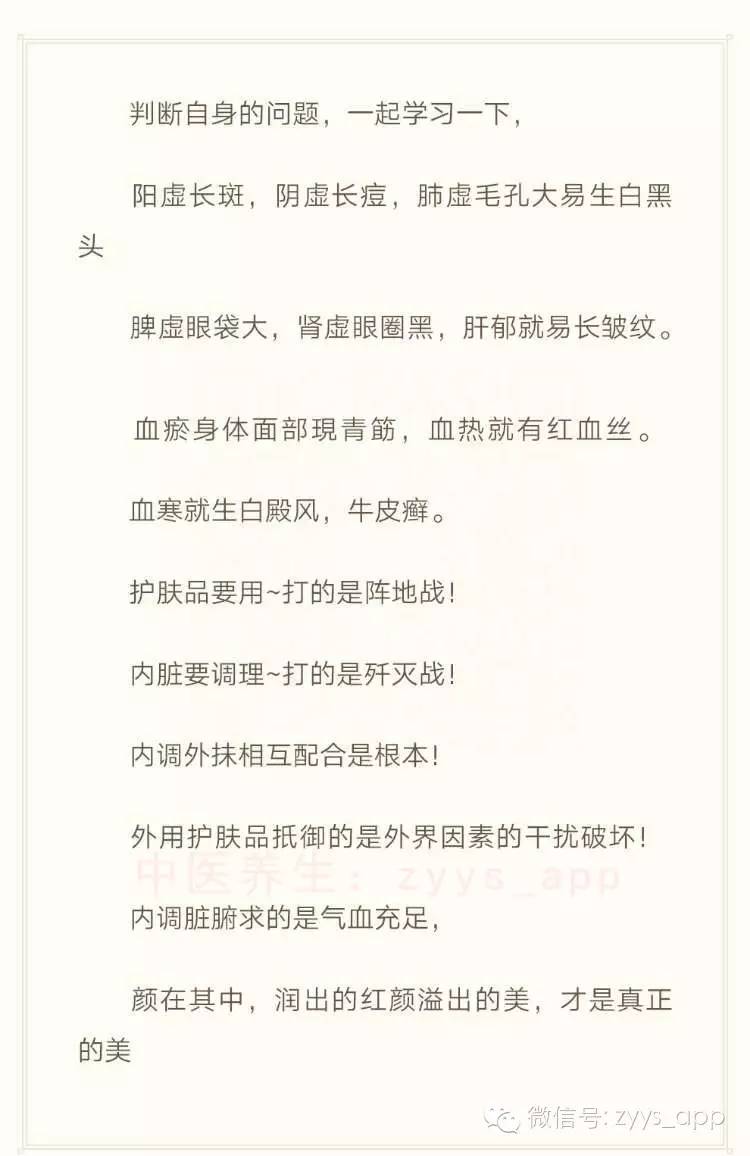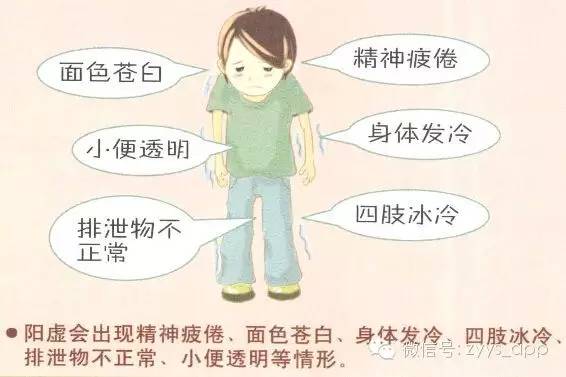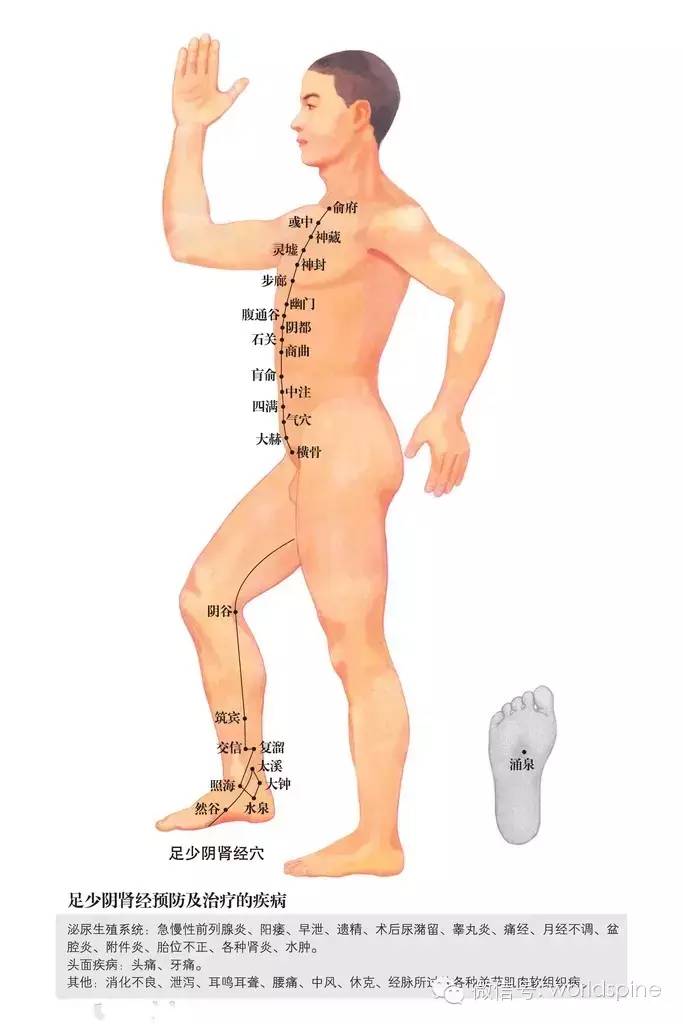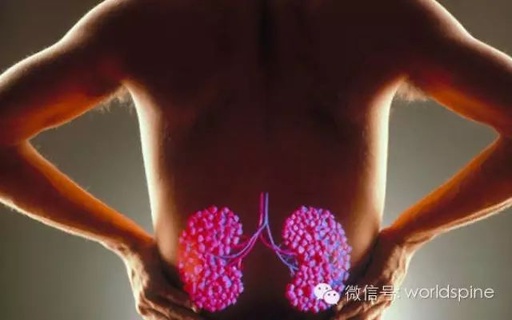
In Traditional Chinese Medicine (TCM), it is believed that “Yang deficiency leads to external cold.” Therefore, Kidney Yang deficiency often manifests as a fear of cold, typically presenting with pale complexion, cold hands and feet, lack of energy, easy fatigue, insomnia, forgetfulness, soreness in the lower back and knees, and frequent nighttime urination.
Solution: Tonify Yang and Benefit the Kidneys. It is recommended to consume more walnuts, and to use specific herbs that can tonify Yang in soups, such as Ba Jitian (Morinda Root) in pig tail soup, along with some Gou Qi Zi (Goji Berries), Shan Yu Rou (Chinese Wolfberry Fruit), Gui Yuan Rou (Longan Meat), and Da Zao (Red Dates), which are both delicious and nourishing.

People with Kidney Yin deficiency are referred to as the “Dry Heat Group,” as they exhibit signs of heat alongside kidney deficiency. TCM theory states that “Yin deficiency generates internal heat,” and Kidney Yin deficiency can easily lead to symptoms such as five hearts heat (feeling heat in the palms and soles, as well as the chest), dry mouth and throat, yellow urine, dry stools, poor mental state, irritability, insomnia with vivid dreams, and sweating during sleep.
Solution: Nourish Yin and Tonify the Kidneys. Foods that nourish the body’s Yin fluids, such as Hei Mu Er (Black Fungus), Lian Zi (Lotus Seed), Gui Yuan Rou (Longan Meat), Sang Shen Zi (Mulberry Fruit), and Gou Qi Zi (Goji Berries) should be consumed more, and drinking soy milk is also beneficial. Timely correction of kidney deficiency is key to preventing age-related diseases such as hearing loss and osteoporosis.
How does the body signal kidney deficiency?
“Yang deficiency leads to external cold,” as mentioned above, when the body’s Yang energy is weak, and Qi and blood are insufficient, the defensive Yang cannot secure the body, making one particularly sensitive to cold. Cold hands and feet are often related to the kidneys.
The salty taste is closely related to the kidneys; TCM theory states that “salty flavor enters the kidneys.” An unexplained salty taste often indicates kidney deficiency. This can be accompanied by symptoms such as dry throat, dizziness, sore lower back and knees, five hearts heat, insomnia with vivid dreams, etc.
Psychologists have systematically studied bodily responses to different emotions and found that fear is primarily associated with the kidneys in TCM. If a person experiences unexplained feelings of fear, it often indicates kidney deficiency.
The kidneys govern the bones, and the bones rely on kidney essence for nourishment. Teeth are considered extensions of the bones, so the health of the teeth directly reflects the health of the bones. Therefore, kidney deficiency can lead to weak bones, resulting in loose teeth.
Generally, saliva production is moderate; one neither feels dry mouth nor excessive salivation. If there is Kidney Yin deficiency, insufficient Yin fluid secretion leads to reduced saliva; if there is Kidney Yang deficiency, excessive Yin fluid secretion leads to increased saliva. Thus, whether there is too much or too little saliva, it may indicate kidney deficiency.
Detailed Explanation of the Kidney Meridian – A Meridian for Lifelong Happiness

Next, we will discuss several key acupoints of the Kidney Meridian. Regular stimulation of these points can help maintain vitality. Tai Xi (Kidney 3): Located in the depression between the inner ankle bone and the Achilles tendon. This point is a major tonifying point for the kidneys and is known for its broad therapeutic range. Many people who feel kidney deficiency, such as experiencing lower back soreness and dizziness, find immediate relief by pressing on Tai Xi, which is often faster than taking kidney tonifying herbs.
Specifically, Tai Xi can treat sexual dysfunction, heel pain, insomnia, hearing loss, loose teeth, tinnitus, bronchial asthma, childhood tics, menstrual toothache, kidney deficiency-related hair loss, inner ear vertigo, hypertension, nocturnal emissions, enuresis, pseudomyopia, and habitual miscarriage in women. In summary, massaging this point can improve overall health and is a fundamental point for strengthening the body.
In fact, using Shen Yu (Kidney 2) in conjunction with Tai Xi to treat various causes of kidney deficiency is the best combination, especially for immediate relief of kidney-related lower back pain. Using acupoints to tonify the kidneys bypasses gastrointestinal absorption, thus avoiding the issue of “deficiency not receiving tonification,” and provides direct and rapid benefits.
Fu Liu (Kidney 7): Located 2 inches directly above Tai Xi. The term “Fu Liu” means to restore the flow of stagnant water. This point is particularly effective for promoting circulation, reducing swelling, and generating new tissue. It can treat chronic lower back pain due to Qi and blood stagnation, knee joint swelling and pain, edema with reduced urination, menstrual irregularities, urinary tract infections, and non-healing ulcers. Some acupuncture experts claim that needling this point has excellent effects on nourishing Kidney Yin, comparable to the effects of Liang Wei Di Huang Wan (Six Flavor Rehmannia Pill), making it a valuable point for patients with heat, dry mouth, and insomnia.
Fu Liu belongs to the Metal element, while the Kidney Meridian belongs to Water; thus, Fu Liu is the mother point of this meridian, capable of generating Kidney Water (Metal generates Water) and calming Liver Fire (Metal controls Wood). Therefore, it can also treat cough, sweating at night, dry mouth, and frequent urination, especially when used in conjunction with Chi Ze (Lung 5), enhancing therapeutic effects. Additionally, Fu Liu can treat numbness in the hands and feet, drooping eyelids, and eye pain, making it an indispensable treasure in one’s health toolkit.
Yong Quan (Kidney 1): This point corresponds to the adrenal reflex zone on the foot and has been traditionally said to promote longevity by rubbing the soles of the feet before sleep. Its most practical effect is to guide Qi and blood downward, treating symptoms such as hypertension, nosebleeds, and headaches due to Qi and blood rising.
This point is best for applying medicinal poultices. For example, patients with hypertension can grind 25 grams of Wu Zhu Yu (Evodia Fruit) into a powder, mix it with vinegar to form a paste, and apply it to the Yong Quan points on both feet before bed, wrapping them in gauze. Typically, blood pressure begins to decrease within about 20 hours, with lasting effects. For severe cases, this can be repeated (using the Jin Ji Du Li (Golden Rooster Stands on One Leg) method enhances the effect).
For nosebleeds, garlic paste can be applied, with the left foot for left-side bleeding and the right foot for right-side bleeding, providing immediate hemostatic effects.
This method can also awaken the spirit and open the orifices, treating chronic rhinitis (some experts suggest avoiding moxibustion at this point, which can be a reference). If using massage, the prerequisite is that if pressing this point causes significant pain, it is suitable. If pressing hard does not elicit pain, or if the skin over this point lacks elasticity and sinks in when pressed, massage should be avoided (as it may further weaken Kidney Qi), and medicinal poultices should be chosen instead.
Tai Xi and Fu Liu respond well to massage and have no contraindications; they can be used together. Whichever point is more sensitive should be massaged first, followed by the less sensitive point until both are responsive. This approach treats ailments and strengthens the body. If cupping is also applied to points like Shen Yu, Guan Yuan, and Qi Hai, it becomes a safe and balanced tonic.
People often recognize Lu Rong (Deer Antler Velvet), Gou Qi Zi (Goji Berries), Chong Cao (Cordyceps), and Zihua Di Ding (Placenta) as excellent kidney tonics, but few realize that Tai Xi, Fu Liu, and Yong Quan are true treasures of life. These small acupoints, often overlooked, hold profound secrets. Some may think I exaggerate, but as the saying goes, “Only the drinker knows whether the water is cold or warm.”
Zhao Hai (Kidney 6): Located on the inner side of the foot, just below the inner ankle bone. This point is crucial for treating eye diseases. Stimulating Zhao Hai can brighten your vision and allow you to see the vastness of the sea, a scene that is quite enchanting.
Zhao Hai is also a key point for treating throat pain, whether acute or chronic tonsillitis, pharyngitis, or nasopharyngitis, showing excellent efficacy. This point has calming and sedative effects, and when combined with Shen Mai (Bladder 5), it is highly effective for treating insomnia and neurasthenia. It can also be used for treating hemiplegia after a stroke.
We will stop here with these four major points of the Kidney Meridian. The ancients placed great importance on the kidneys, and the Huang Di Nei Jing (Yellow Emperor’s Classic of Internal Medicine) specifically teaches methods for kidney tonification – “Dropping the Foot Technique”: “Loosely wearing hair, walking with heavy shoes.” These ten short characters for kidney tonification are often overlooked.
The Kidney Meridian is a pathway that significantly impacts a person’s lifelong happiness. To improve quality of life, especially as one transitions from basic needs to a better standard of living, it is essential to strengthen the Kidney Meridian.
The Kidney Meridian Pharmacy – Activating the Innate Essence, Fear Not Disease and Aging. Many acupoints on the Kidney Meridian can treat the same ailments, and we must use them flexibly. While Tai Xi treats this, and Fu Liu treats that, it is crucial to be adaptable. If a point that worked today is no longer sensitive tomorrow, switch to the most sensitive point for massage. Remember this.
In fact, we should not only think about which acupoints can treat dementia, tinnitus, or loose teeth; as long as we open the Kidney Meridian, these symptoms will disappear.
Source from the internet, copyright belongs to the original author. If there is any infringement, please contact us promptly, and we will delete it.
[New Friends]Click the blue text below the title to quickly follow the World Spine Health Alliance
[Old Friends]Click the upper right corner to share and follow the public WeChat account worldspine
[More Information] Open the World Spine Health Alliance public platform and click the upper right corner to view historical records
For submissions and collaborations, contact: [email protected]

